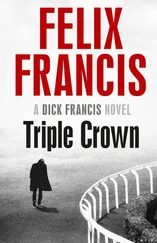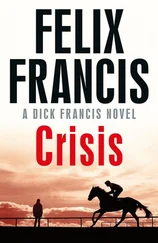I studied the lists briefly.
“I doubt it,” I said. “They are handwritten and we do everything on computer. I think these could be amounts of money.” I pointed at the center two columns. “And these look like dates.”
“Yes,” he said. “I worked that much out. But do you know what they are?”
“Do they correspond to the amounts on the credit card statements?” I asked.
“No. I looked at that. None of the figures are the same.”
“How about last month’s statements?” I said. “Most of these dates are last month.”
“We have been unable to locate any statements other than those you have seen. But some of the dates on this list would have been for the statements we have, and none of the amounts match.”
“Then I’m afraid I can’t help you,” I said. “I don’t recognize any of the amounts and, individually, most are far too small to be anything to do with Mr. Kovak’s work. We always work in thousands, if not tens of thousands. Most of these are hundreds.” I looked once more at the lists. “Could that third column be people’s initials?”
The chief inspector looked. “It might be. Do you recognize any of them? For example, do they match any of your work colleagues?”
I scanned through the list. “Not that I can see.”
“Right,” he said suddenly, as if making a decision. “With your permission we will take these papers away, together with the credit card statements, Mr. Kovak’s laptop computer and these other things.”
The chief inspector waved a hand towards a box on a side table near the door. I went over and looked in. The box contained various bits and pieces, including Herb’s American passport, an address book, a desk diary and a folderful of bank statements. It was all rather sad.
“It’s fine by me,” I said. “But you do know that his computer won’t give you access to Mr. Kovak’s work files?”
“So I believe.”
“He would have been able to access the office files and e-mails through his laptop, but no records of them would have been stored on it. The laptop would have merely been acting as a keyboard and a screen for the firm’s mainframe computer in Lombard Street.”
“Nevertheless,” said the chief inspector, “it is our policy to search through such a device for any correspondence that might have a bearing on his death. I trust you are happy with that.”
“Absolutely,” I agreed.
“Good,” he said, folding the computer flat and placing it in the box with the other things.
“But can I make copies of that credit card stuff before you take it away? I do know that one of the first tasks for executors is to close the bank accounts and pay the debts of the deceased but goodness’ knows where I will get a hundred thousand to do that. How much did he have in the bank?”
“Not that much,” said the chief inspector.
“Do you mind if I look?” I asked.
“Not at all,” he said. “I understand from Mr. Kovak’s lawyer that it will be yours anyway.”
I pulled the folder of bank statements out of the box and looked at the most recent ones. The balance was quite healthy, but, as DCI Tomlinson had said, it didn’t run to anything like a hundred thousand. More like a tenth of that. I unclipped the last statement from the folder and made a photocopy using the printer/copier on the desk. I then photocopied all the credit card statements, and both sides of the two sheets of handwritten figures, before handing them all back to the policeman.
“Thank you,” he said. “I just need your signature on this form to give us permission to remove these items, and I have a receipt for them to give you.”
He handed me the form, which I signed, and the receipt, which I put in my pocket.
“Bloody paperwork,” he said, taking back the form. “These days we have to be so damn careful to do everything exactly according to the book or some clever-dick defense lawyer will claim that any evidence we find is not admissible in court. I can tell you, it’s a bloody nightmare.”
Although better on the whole, I thought, than the police marching in anywhere they liked, in their size-twelve boots, taking away any stuff they wanted without permission and for no good reason.
He packed his paperwork into the box along with the other things. “Now, Mr. Foxton,” he said, “could you just wander round the flat to satisfy yourself that we have left the place in reasonable order and also to check that nothing appears out of place or is missing.”
“I’m happy to have a look,” I said, “but I’ve never been in here before so I don’t know what it looked like before you arrived.”
“Please, anyway,” he said, putting his hand out towards the door.
He followed me as I went around the flat, looking briefly in each of the two bedrooms, the bathroom and the well-fitted kitchen. Nothing to my eye appeared out of place, but of course it wouldn’t.
“Have you searched everywhere?” I asked.
“Not a proper forensic search,” he said. “We haven’t taken the floorboards up or knocked holes in the walls, that sort of thing. But we had a reasonable look round to see if there was anything that could assist us in determining why he was killed. Mr. Kovak was a victim of the crime, not the perpetrator.”
“How did you get in?” I asked as we went back along the hallway. “The front door doesn’t seem to have been forced.”
“The key was in Mr. Kovak’s trouser pocket.”
I thought again about Herb lying silent and cold in some morgue refrigerator.
“How about his funeral?” I asked.
“What about it?” he said.
“I suppose it’s my job to organize it.”
“Not before the Coroner has released the body,” he said.
“And when will that be?” I asked.
“Not just yet,” he replied. “He hasn’t been formally identified.”
“But I told you who he was.”
“Yes, sir,” he said with irony, “I know that. And we are pretty certain we know who he is because you told us, but you are not his next of kin and, to be fair, you have only known him for five years. He could have told you that he was Herbert Kovak while not actually being so.”
“You’re showing that suspicious mind of yours again, Chief Inspector.”
He smiled. “We are still trying to trace his next of kin, but so far without success.”
“I know he lived in New York just before he came to England,” I said. “But he was brought up in Kentucky. In Louisville. At least that is what he said.”
Did I now doubt it?
“Yes,” said the chief inspector. “We have been in touch with our counterparts in New York and Louisville, but so far they have been unable to contact any members of his family. It would appear that his parents are deceased.”
“Can you give me any idea of when a funeral can be held?”
“Not at present,” he said. “I imagine it won’t be for a few weeks at least. Maybe his remains will need to be sent back to the United States.”
“Don’t I decide that, as the executor of his will?” I asked.
“Maybe,” he said. “Depends on the formal identification. But I’ll leave that up to the Coroner. In the meantime, if you think of anything else that might help us with our inquiries please call me.” He dug in his inside pocket for a card. “Use the mobile number. It’s usually on all the time, and you can leave a message if it’s not.”
I put the card in my wallet and Chief Inspector Tomlinson collected the box of possible evidence.
“Can I offer you a lift home?” he asked.
“No thank you. I think I’ll have a look round here first. I can catch the bus.”
“Don’t overdo it with that toe,” he said. “That’s what I did with mine, and it took weeks to get right.”
Читать дальше












